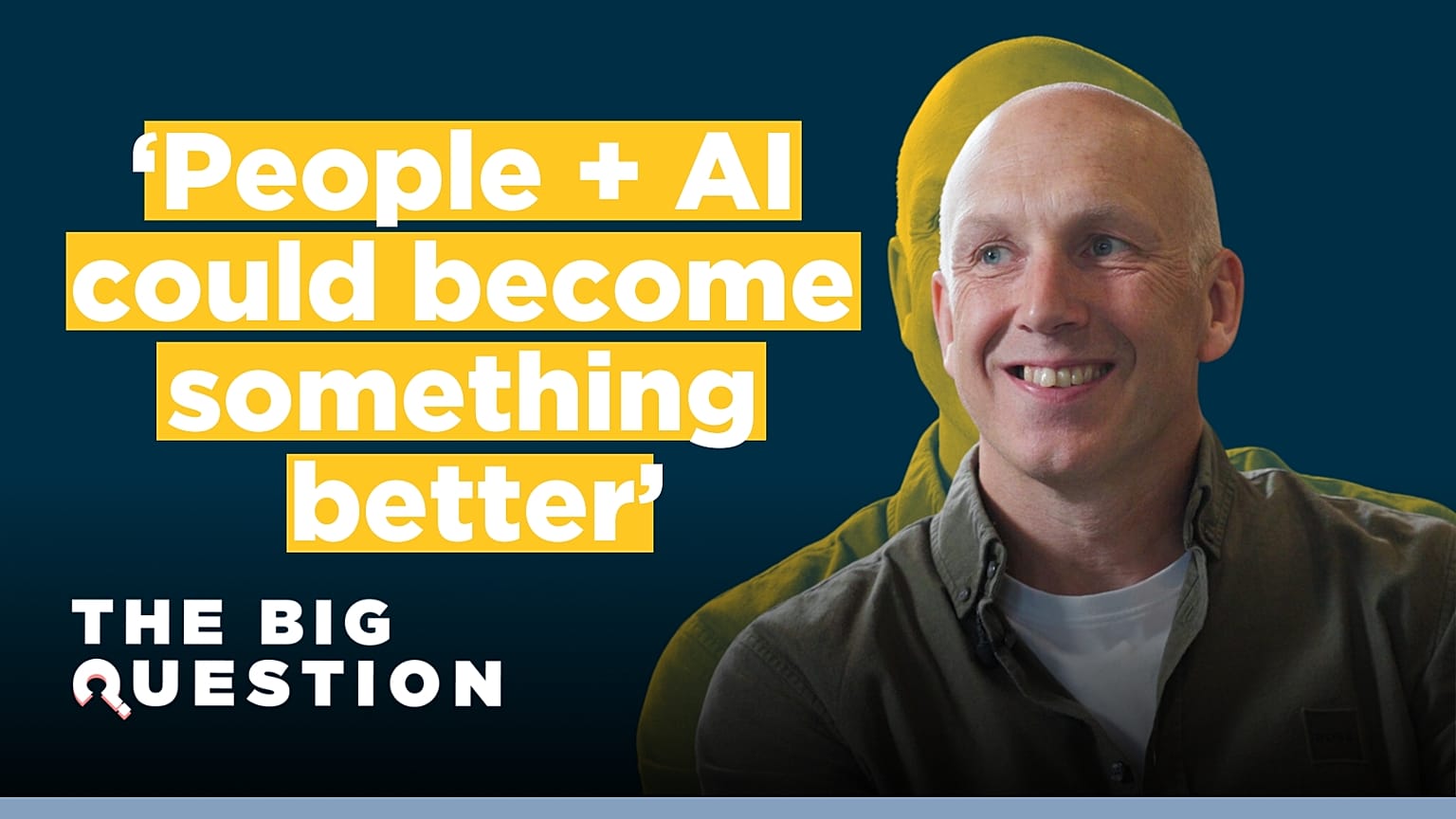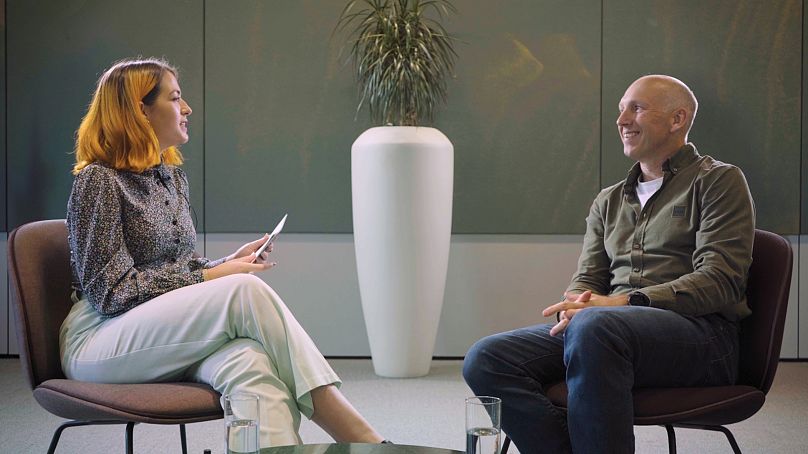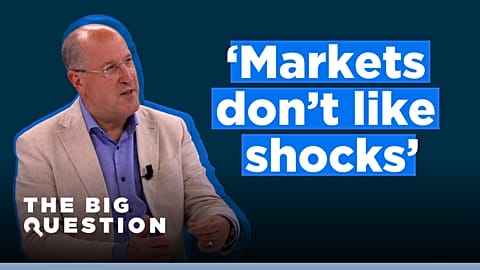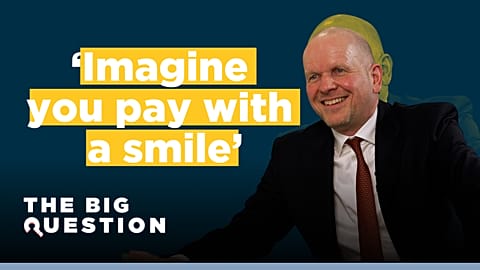KPMG’s Global Head of AI speaks to Euronews Business about his optimistic outlook on the applications of AI.
Have you ever wondered why some people progress more quickly than you at work? Because we all know it’s not always because they’re better at their job…
 ADVERTISEMENT
ADVERTISEMENT
 ADVERTISEMENT
ADVERTISEMENT
According to a study by KPMG, there’s a pretty high chance it could be connected to your social class.
The study showed that individuals from lower socio-economic backgrounds took an average 19% longer to progress to the next level, in comparison to those from higher socio-economic backgrounds.
But AI could help level the playing field. Maybe.
In this episode of The Big Question, Hannah Brown sits down with KPMG’s Global Head of AI, David Rowlands to discuss AI’s potential to increase or decrease the wealth divide, depending on how we use it.
Can AI help increase social mobility?
The study, published by KPMG UK, looked at 16,500 KPMG employees’ career paths over a 5 year period and discovered that a person’s socio-economic background was the main factor affecting the speed at which they progressed in the company.
Combining multiple low-scoring factors seemed to have a multiplying effect, with white women from lower socio-economic backgrounds progressing at the slowest rate.
The same happened at the other end of the scale with Asian men from higher socio-economic backgrounds progressing more quickly and forming a gap between these two groups of 32%.
While KPMG is working hard to level the playing field internally, David Rowlands seems confident AI could help other companies, industries and even nations do the same.
“AI is like a superpower, it's going to enhance people's capabilities as individuals as well as for workforces, organisations, societies as a whole. But it doesn't happen equally.
“In actual fact, AI enhances the performance of medium to lower performers more than it does the top end. So in other words, it's lifting the whole team's performance, but it's closing the gap of performance,” David explained.
“That's an opportunity for people who've been left behind by whatever experience in life - access to education or training in the past. And, of course, you reward people economically by their performance so this is an opportunity to close that wealth gap.”
How do we make sure nobody is excluded from AI benefits?
“Unless we start now being purposeful about how we want society to look, how we want it to be fairer, more equitable, we're going to miss the moment,” David insisted.
Looking beyond internal business parameters, one of the key factors to ensuring those from poorer backgrounds or countries are not left behind is education and AI access parity. However, whose responsibility is it to make that happen?
Through a combination of private and public effort, people need access to electricity, the internet and a device. Data suggests that there are still 2.6 billion people across the planet without access to the internet and almost 746 million still without electricity.
“There is an interesting question around supranational bodies such as the European Union and access to compute power, access to model development, access to training and development so that those are done across nation states,” David suggests.
“You can easily see there would be a key role for nation states in this and the core underlying skills to be able to use AI well - that's got to be part of a school curriculum.
“If we can get the skills into people's hands during their schooling, university periods, that's going to help some of these social benefits. If we get this right, it has the opportunity for us to shape a future that's way fairer than the one we have today.”
The Big Question is a series from Euronews Business where we sit down with industry leaders and experts to discuss some of the most important topics on today’s agenda.
Watch the video above to see the full interview with David Rowlands.


















